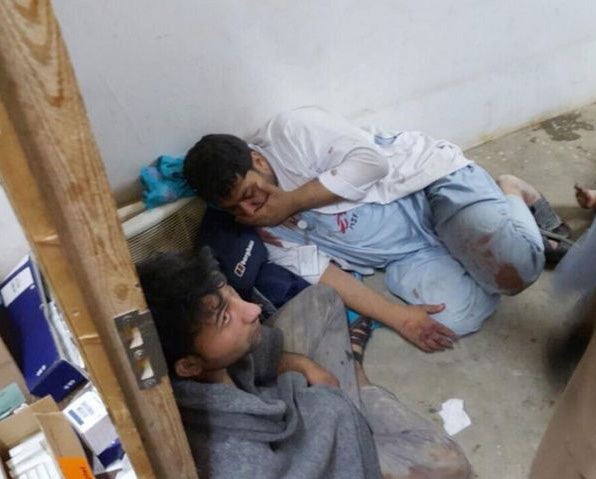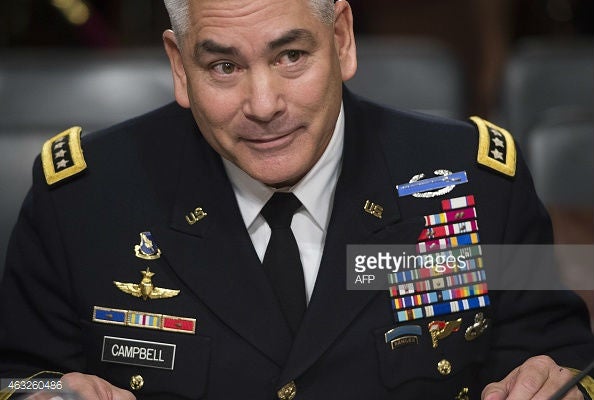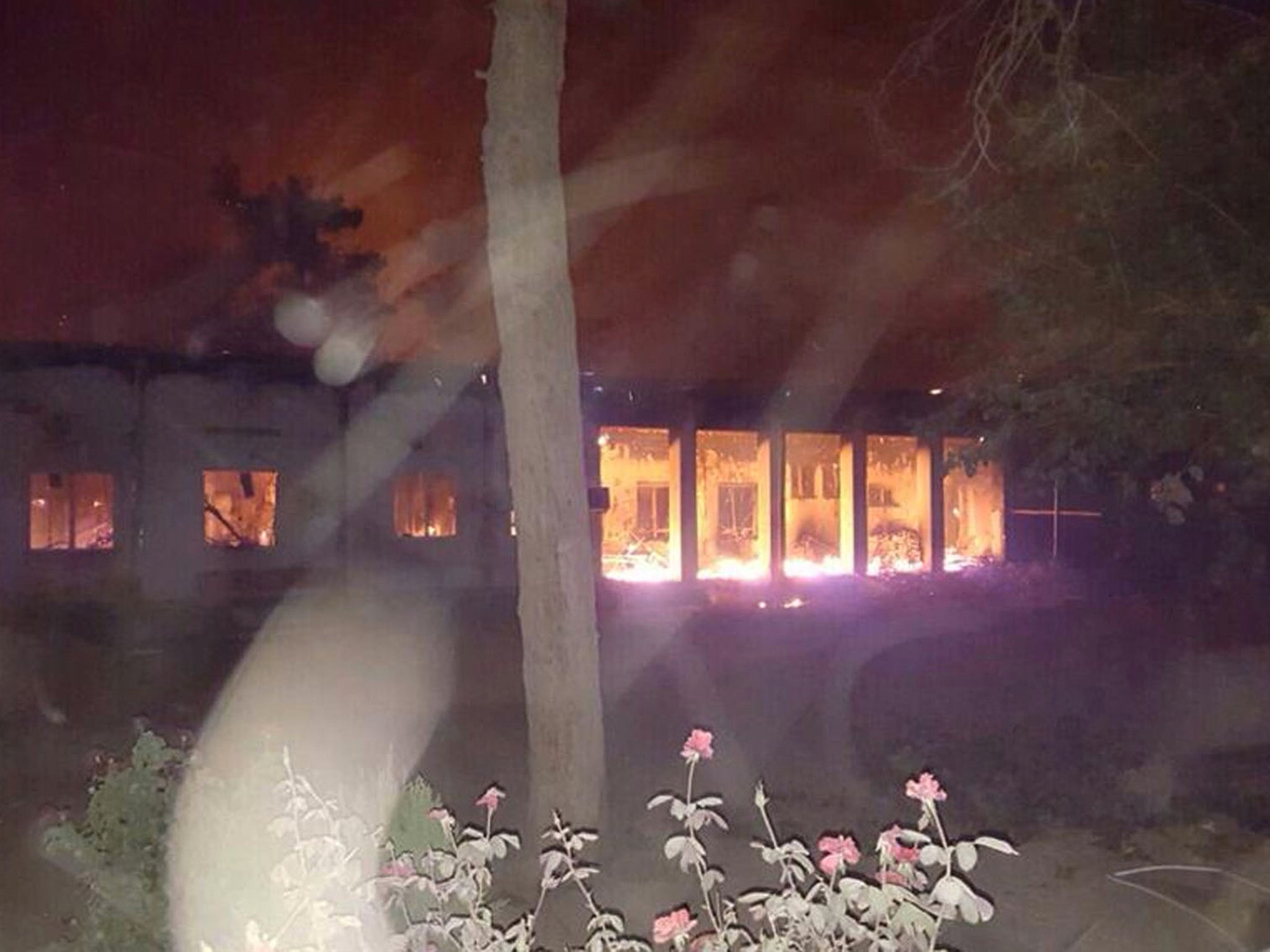US says it 'mistakenly struck' Afghan hospital in attack that killed 22 people
Gen John Campbell was giving testimony on Capitol Hill

Your support helps us to tell the story
From reproductive rights to climate change to Big Tech, The Independent is on the ground when the story is developing. Whether it's investigating the financials of Elon Musk's pro-Trump PAC or producing our latest documentary, 'The A Word', which shines a light on the American women fighting for reproductive rights, we know how important it is to parse out the facts from the messaging.
At such a critical moment in US history, we need reporters on the ground. Your donation allows us to keep sending journalists to speak to both sides of the story.
The Independent is trusted by Americans across the entire political spectrum. And unlike many other quality news outlets, we choose not to lock Americans out of our reporting and analysis with paywalls. We believe quality journalism should be available to everyone, paid for by those who can afford it.
Your support makes all the difference.A senior US military commander has said his forces did not mean to strike the hospital in Afghanistan in an operation that resulted in the deaths of 22 people - claiming “we would never intentionally target a protected medical facility”.
In testimony on Capitol Hill that appeared to change the US’s position on the incident once again, Gen John Campbell said the attack on the hospital in Kunduz took place despite “rigorous”military procedures designed to avoid such mistakes.
“To be clear, the decision to provide [airstrikes] was a U.S. decision, made within the U.S. chain of command,” he told the Senate Arms Services Committee, according to the Associated Press.
“The hospital was mistakenly struck. We would never intentionally target a protected medical facility.”

Testifying three days after the medical clinic strike that killed at least 22 people, Mr Campbell said Afghan forces had requested air support in the early hours of Saturday while engaged in combat with Taliban fighters.
The Afghan forces were communicating with US special operations troops at the scene. Those US forces were in contact with the AC-130 gunship that fired on the medical clinic run by Doctors Without Borders (MSF), he added.
MSF has said it considers the attack a war crime and has called for an independent inquiry of what happened.
“Their description of the attack keeps changing - from collateral damage, to a tragic incident, to now attempting to pass responsibility to the Afghanistan government,” said Christopher Stokes, general director for MSF.

Anti-war protesters sat in the front row of Tuesday’s hearing with red colouring, depicting blood, on their faces. They carried signs that read: “Healthcare not warfare”. A woman who shouted “bombing hospitals is a war crime! Stop the bombing now”, was escorted from the room.
The airstrike came amid ongoing fighting after Taliban forces seized control of large parts of the city a week ago.
Mr Campbell also told a Senate committee that he thought President Barack Obama should revise the current plan to reduce the US force in Afghanistan at the end of 2016. The plan calls for cutting the force from 9,800 to about 1,000 embassy-based security.
“If you go to just embassy only, our ability to do TAA (train, advise and assist) is very limited. Our ability to do CT (counterterror operations) is much more limited,” Mr Campbell said.
Join our commenting forum
Join thought-provoking conversations, follow other Independent readers and see their replies
Comments